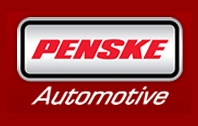Survey Finds Third-Party Logistics CEOs Project Growth Amidst Slow Economy
 |
DENVER--Oct. 21, 2013: Today, the 20th Annual Survey of Third-Party Logistics Provider CEOs, sponsored by Penske Logistics, revealed that despite a slow economy, North American CEOs have their sights set on growth, expecting their companies to increase revenues by an average of 14.6 percent over the next three years. This year, 3PL CEOs, surveyed in North America, Europe and the Asia-Pacific regions, are generally optimistic about company and industry growth prospects over the next one and three-year periods. North American and European CEOs forecasted higher three year company revenue growth projections than last year, 14.6 percent and 10.3 percent, respectively. For the three-year period, Asia-Pacific CEOs projected 11.6 percent growth, down from 12.5 percent in 2012.
The CEOs were also asked to project regional 3PL industry revenue growth rates for the next three years in all three regions. For that three-year period, the CEOs projected average regional revenue growth rates of 8.29 percent in North America, 5.9 percent in Europe and 8.0 percent in the Asia-Pacific region.
The survey is being presented today at the Council of Supply Chain Management Professionals (CSCMP) Annual Global Conference by survey author, Dr. Robert Lieb, Professor of Supply Chain Management at Northeastern University's D'Amore-McKim School of Business, and Joe Carlier, Senior Vice President of Sales for Penske Logistics. The findings analyze responses from 34 major third-party logistics company CEOs across North America, Europe and Asia-Pacific whose companies generated approximately $50 billion in revenue in 2012. The report was co-authored with Dr. Kristin Lieb, Associate Professor of Marketing Communications, Emerson College. The survey is underwritten by Penske Logistics, a leading provider of third-party logistics services.
Globally, 52 percent of companies either met or exceeded their revenue projections in 2012, down from 63 percent in 2011. More than two-thirds of these logistics companies were profitable during 2012. The continued instability of the Euro-zone economy and migration of some manufacturing out of China meant lower profitability in the Europe and Asia-Pacific regions (50 and 56 percent experienced moderate profitability, respectively). However, regional opportunities are instilling confidence in the industry.
"Despite Euro-zone challenges and some slowing of manufacturing activity in China, opportunities to expand services geographically have both regions poised for growth," commented Dr. Robert Lieb. "Expansion into eastern Europe and Russia and an increased focus on servicing domestic consumption within China provide 3PLs with the opportunity to strengthen and stabilize their operations in those regions by filling out the services offered and customer base."
Global Near-shoring and Manufacturing Trends
The survey revealed that some manufacturing activity is leaving China, impacting both Asia-Pacific and North American regions significantly. Within Asia-Pacific, 78 percent of CEOs claimed that rising wage costs in China have caused companies to shift some manufacturing and export consolidation to lower-priced geographies, including Thailand, Vietnam, Indonesia and Sri Lanka. In the North American region, the migration toward near-shoring continues with some key 3PL accounts moving from Asia-Pacific to Mexico. In particular, companies in the automotive, technology and pharmaceutical industries have moved some sourcing and manufacturing activities to Mexico. Eighty-seven percent of the North American CEOs involved in the survey reported providing third-party logistics services in Mexico, generating an average of 9.3 percent of their revenues in the U.S. This number is projected to increase to an average of 12.5 percent in three years.
"As companies begin shifting their product origins to local regions, they will look for a third-party logistics provider that can strategically navigate through the new normal in the supply chain industry," stated Carlier. "This includes the shift in supply chain length, changes in speed and demand for warehousing and transportation along trade corridors."
Major Supply Chain and Logistics Industry Trends and Insights
Talent Management: Finding and keeping talent, specifically managers, has ranked as one of the most significant market challenges in each regional response over the past twenty years. To ensure a bright future, third-party logistics providers must be competitive across multiple dimensions when it comes to hiring, and they must try to understand what the new generation of employees are looking for in an employer. Forecasting Revenue: With slow economic growth continuing over the next year, North American third-party logistics CEOs expect there to be a greater emphasis on developing new financial and economic indicators to provide more accurate revenue projections. Sustainability: The third-party logistics industry continues to get "greener," with 56 percent of companies launching new sustainability initiatives during 2012. However, these initiatives have not yet been linked to attracting new customers or keeping current customers. Retail/ E-commerce: Shifting dynamics in the global retail economy towards omnichannel retailing has led to an expansion of reverse logistics activities in North America and increased popularity of e-commerce and e-fulfillment in Asia-Pacific. Healthcare: Twenty-eight of the 34 companies provide third-party logistics services to customers in the healthcare industry, and many cited increasing regulations of the industry as being a major challenge in their efforts to grow business in that vertical.
Survey Design Thirty-four CEOs of large third-party logistics companies across North America, Europe and Asia-Pacific completed surveys via an Internet-based questionnaire during the summer of 2013. Companies participating in the annual survey included: Agility Logistics, Cardinal Logistics, CEVA Logistics, DB Schenker, DHL Excel Supply Chain, DSC Logistics, Genco Supply Chain Solutions, Kuehne + Nagel Logistics, Inc., Menlo Logistics, MIQ Logistics, Neovia Logistics, Penske Logistics, Rhenus Contract Logistics, Transplace, UPS Supply Chain Solutions, Uti Integrated Logistics and Werner Logistics.


